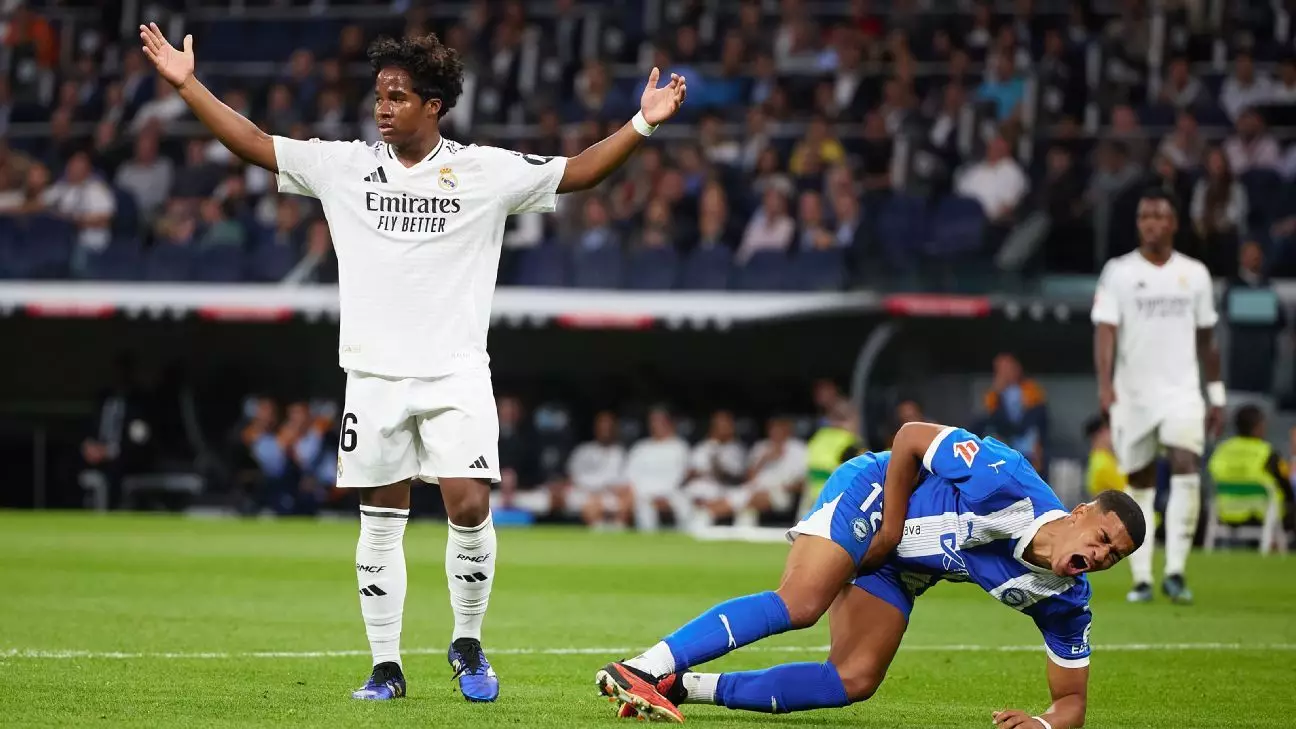In an electric LaLiga encounter, Real Madrid managed to edge out Alavés with a narrow 3-2 victory, but the match was not without its controversies. The match, held at the iconic Santiago Bernabéu Stadium, had the makings of a decisive Madrid win when goals from Lucas Vázquez, Kylian Mbappé, and Rodrygo Goes placed them firmly in control. However, two late goals from Alavés ignited a surge of tension, making the final moments tumultuous as the underdogs threatened to equalize.
Despite the win, the spotlight immediately turned to an incident involving teenager Endrick, whose on-field conduct ignited debate among players and coaches alike. The forward’s clash with Alavés defender Santiago Mouriño raised eyebrows, with Alavés coach Luis García Plaza insisting it warranted a red card rather than the yellow that was issued. This brings up a significant discussion about the responsibility of referees and the use of VAR in facilitating fair play in high-stakes matches.
The incident in question, where Endrick allegedly struck Mouriño with his knee during an off-the-ball altercation, underscored the challenges that come with youthful talent. García Plaza’s insistence that the act merited a dismissal speaks to the stakes involved in a league characterized by its intensity and drama. He emphatically stated, “It’s a clear red, nobody can say it wasn’t.” Such statements reveal a growing concern about how younger players are officiated, especially when passion leads to reckless behavior.
Additionally, the response from Real Madrid’s manager, Carlo Ancelotti, was notably cautious. He refrained from commenting on the incident, highlighting a clear delineation between coaching and officiating. Ancelotti’s remarks about the necessity of adapting to new rules concerning dissent showed an awareness of the evolving nature of the game, especially as dissent from high-profile players can escalate quickly and influence match dynamics.
In the aftermath of the match, it will be interesting to see how the discussions surrounding Endrick’s conduct will influence his development moving forward. A source from Real Madrid indicated that the club intends to address the incident with the young player, suggesting that they view these moments as crucial learning opportunities rather than simple mistakes. Such dialogues are essential in shaping a player’s career; understanding the line between fervor and recklessness is a nuanced lesson in professional football.
Likewise, Ancelotti’s concern over his team earning too many yellow cards for dissent indicates a broader, systemic need for compliance with game regulations. The combination of youthful exuberance and intense competitive pressure often results in emotional responses that can compromise a team’s composure during critical phases of play.
Ultimately, this match served as more than just a testament to Real Madrid’s attacking capabilities. It revealed the intricate dynamics of modern football where decisions made in split seconds can ripple through a team’s strategy and performance. As Real Madrid prepares for an upcoming derby against Atlético Madrid, the focus will inevitably be on not just their tactical execution but also their discipline on the field. The question remains: how will a young squad like Madrid adjust to the scrutiny of both referees and opponents in such high-pressure situations? Staying attuned to the evolving regulations will be key.
